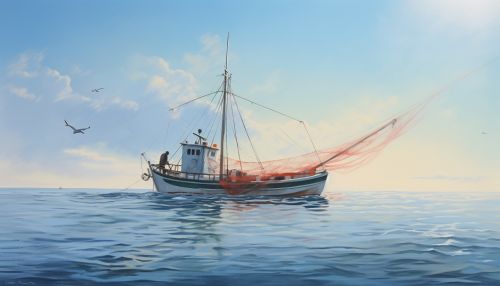Individual fishing quota
Overview
An individual fishing quota (IFQ) is a type of fisheries management system that allocates a certain portion of the total allowable catch to individual fishermen, or to companies. These quotas can be bought, sold, or leased, a feature that sets them apart from other management strategies like effort controls or closed seasons. IFQs are also known as "catch shares".


History
The concept of individual fishing quotas and their predecessor, total allowable catch (TAC), originated in the 1950s and 1960s in response to the failure of other fisheries management systems to prevent overfishing. The first IFQ programs were implemented in the 1970s and 1980s in countries like Iceland, New Zealand, and the United States.
Design and Implementation
The design and implementation of IFQ programs can vary greatly depending on the specific goals of the program, the nature of the fishery, and the socio-economic context. Key elements of IFQ programs include the method of allocation, the size of the individual quotas, the ability to transfer quotas, and the duration of the quotas.
Benefits and Criticisms
IFQs have been praised for their ability to eliminate the "race to fish", reduce overcapitalization, and improve safety and product quality. However, they have also been criticized for contributing to the consolidation of the fishing industry, creating barriers to entry for new fishermen, and for their potential negative impacts on fishing communities.
Case Studies
Several case studies of IFQ programs, including those in Alaska's halibut and sablefish fisheries, Iceland's demersal and pelagic fisheries, and New Zealand's ITQ system, provide insights into the strengths and weaknesses of IFQs as a management tool.
